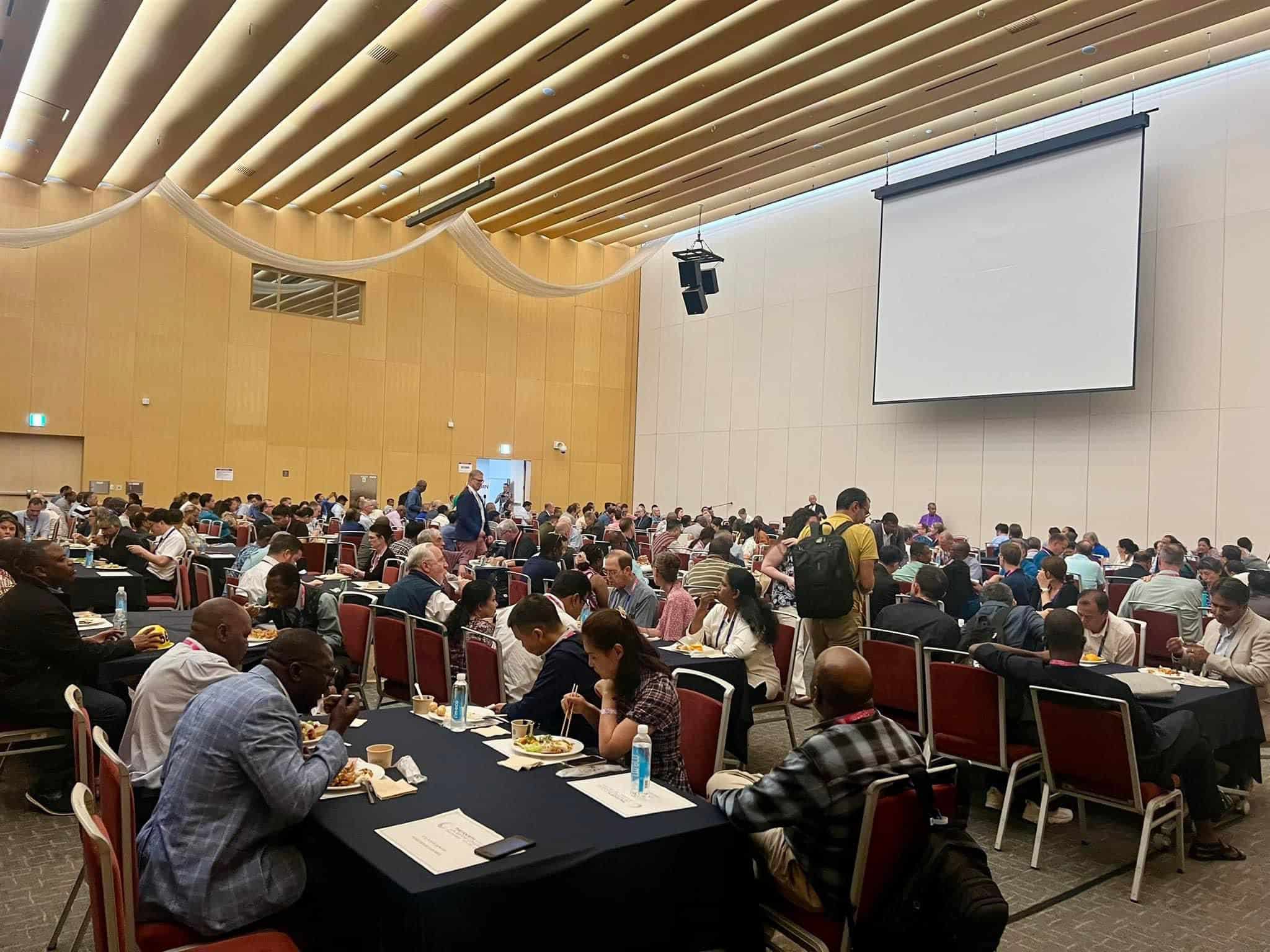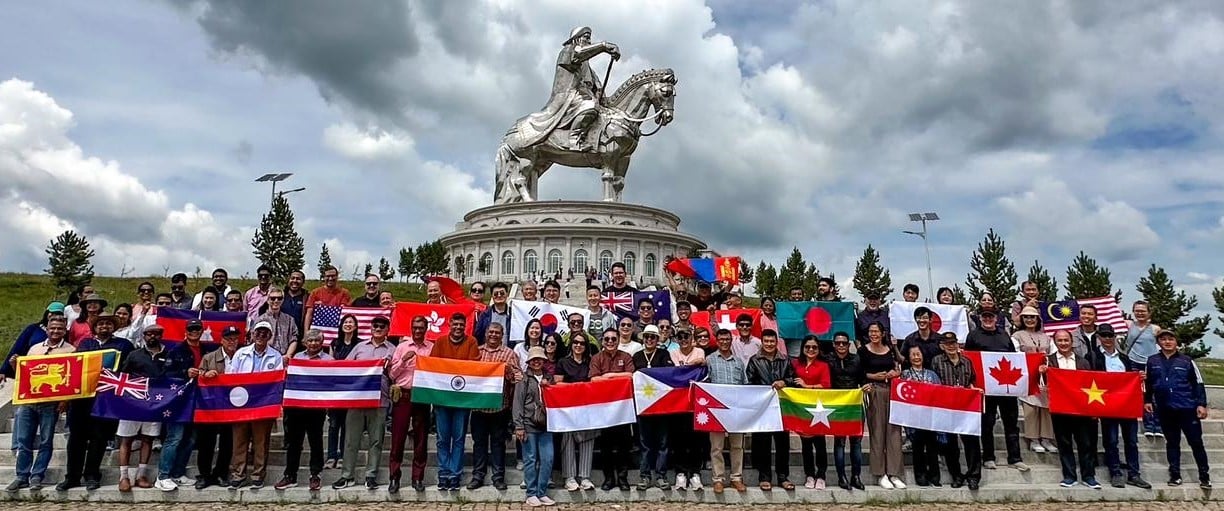By Wissam al-Saliby, Director of WEA Geneva Office
Evangelicals have a vested interest in the solid grounding of the response to hate speech in human rights law, thus protecting both Freedom of Expression and Freedom of Religion.
In many nations, Evangelical communities are a minority threatened by violence and discrimination fueled by hate speech against Evangelicals, Christians and other religious minorities. This is especially true in countries with majority Muslim, Hindu or Buddhist populations.
In other countries, Evangelical communities and leaders are falsely accused of carrying hate speech in their public discourses. When it comes to LGBT, marriage, the sanctity of human life and gender issues, there are cases where stating Biblical orthodoxy is equated with hate speech. In Finland, earlier this year, a Bishop and a politician were acquitted in separate criminal trials from charges of hate speech for statements related to human sexuality.i In London, several Christian preachers were acquitted by the courts following charges of hate speech charges over sermons on biblical marriage.ii In Algeria, a convert to Christianity was sentenced to prison and is currently serving his prison sentence for sharing on Facebook a cartoon deemed hurtful to the sentiment of the majority religion, Islam.
The WEA advocates for a strict and narrow legislative response to hate speech per the criteria of Article 20 of the International Covenant on Civil and Political Rights.
This position was first (to my knowledge) communicated in a submission to the Office of the High Commissioner for Human Rights (OHCHR)iii following the Office’s call for a series of expert workshops on the linkage between articles 19 and 20 of the International Covenant on Civil and Political Rights (ICCPR). OHCHR sought to understand better “what constitutes ‘incitement’ in the sense of article 20 of the ICCPR” and “how to effectively address it while ensuring full respect for freedom of expression as enshrined in article 19 of the ICCPR.”
In this paper, we advocated (1) protection of freedom of expression, even if it entails protecting certain odious speech; (2) interpreting “incitement” as contained in ICCPR article 20 in a manner that protects religious minorities from actual, imminent harm; (3) Rejecting the call for vague “hate speech” codes that penalize speech which makes the listener uncomfortable; and (4) protecting groups such as national, racial and religious minorities that are the victims of violence directly attributable to the advocacy of hatred.
Furthermore, we advocated that OHCHR focuses on “advocacy of national, racial or religious hatred that calls for incitement to discrimination, hostility or violence,” and not “incitement to national, racial or religious hatred.” The later improperly alters the language used in the ICCPR and lowers protection for freedom of expression.
After ten years of human rights advocacy in Geneva on behalf of its 140 member national alliances, our position remains the same. Our commitment to a strict and narrow legislative approach stems not from a distinct political philosophy but from our work with our constituency.
Many nations are currently witnessing profound political polarization and deepening societal divisions. The risk of communal violence is increasing. Here in Switzerland, in the last years, groups expressing their support for the peaceful anti-abortion March for Life suffered paint attacks against their offices, violent counter-demonstrations and graffiti targeting the homes of individual Christian leaders.iv
Polarization and division have led to blurring the definitions of hate, harm, “actual and imminent harm,” and incitement to violence. As I mentioned earlier in this paper, there are more and more criminal court cases against public figures quoting the Bible on sexuality and being accused of hate speech.
Harm has become subjective rather than objective. The burden of proof here is on the LGBT community not only to demonstrate that preaching against their sexual preference is damaging but also to clarify what exactly they mean by damaging. The same applies to any national, religious, ethnic or other community. Care is needed here, for if damage refers to experiencing offense, we are on slippery grounds.
In other nations, the weak rule of law and the retreat of democratic practice have rendered hate speech laws ineffective at best and a tool for the oppression of religious minorities at worst.
According to the latest Global State of Democracy 2022 report published in November 2022, twice as many countries became more authoritarian in 2021 compared to those that became more democratic. “Authoritarian regimes have deepened their repression, with 2021 being the worst year on record.”v
Türkiye and India are two examples where democracies are backsliding, according to multiple sources.
In a report submitted to OHCHR on Freedom of Religion in Türkiye, the WEA wrote: “There is a difference between the attitudes and decisions of the investigating authorities when this type of inciteful hate speech is directed at the faith, place of worship, leaders or members of the majority religion” and when it is directed at “religious minorities.” The lack of neutrality of the judiciary has damaged the trust of the Protestant community in the judicial system.”vi
In several of our reports on India, we deplored the impunity for radical nationalist forces that target and attack the minorities in India and spread hate speech and disinformation.vii
So in March 2021, at the Human Rights Council, we asked the Special Rapporteur on Minority Issues, “how can states ensure that laws addressing advocacy of religious hatred are not turned against minorities?”viii
Without an adequate answer to this question, the criminalization of hate speech will only undermine Freedom of Religion and Freedom of Expression.
What is our broader response?
First, we agree with the UN SR FoRB Heiner Bielefeldt ( December 2013 report) that States have an obligation to promote interreligious communication and take active measures to tackle manifestations of collective religious hatred.
At the Human Rights Council, on several occasions, the WEA called on leaders to denounce specific acts of hate speech targeting religious minorities.ix
Second, as per the Rabat Plan of Action (Paragraph 37): “To tackle the root causes of intolerance, a much broader set of policy measures is necessary, for example, in the areas of intercultural dialogue – reciprocal knowledge and interaction –, education on pluralism and diversity, and policies empowering minorities and indigenous people to exercise their right to freedom of expression.”
Faith leaders and their communities, starting with my Evangelical community, should combat hate speech through internal (intra-community) and external (multi-faith and society-wide) engagement and bridge-building. The pursuit of peacemaking and social cohesion among the various communities and components of society is paramount to protecting freedom of expression and freedom of religion.
We are communal societies. We need communal responses to hate speech.
You may remember that in 2010, an Evangelical pastor in the United States tried to burn a copy of the Qur’an. In September 2010, Dr Geoff Tunnicliffe, then secretary general of the World Evangelical Alliance, tried to dissuade Dr Terry Jones of Dove World Outreach Center in Gainesville, Florida, from following through on his plan to burn the Quran. Carl Moeller, president of Open Doors USA, denounced the act as unchristian and said, “Hate is not biblical; it is not the message of Jesus.”x In April 2012, the World Evangelical Alliance condemned the case of the burning of the Qur’an.xi
Furthermore, my organization is regularly involved in multi-faith dialogue and outreach, the most recent of which is our participation in the Religion 20 Forum in Bali, Indonesia.xiiThe WEA Peace and Reconciliation Network pursue significant peacemaking work often in highly tense situations.xiii In 2011, Christian Witness in a Multi-Religious World was a landmark document addressing the conduct of Christian witness around the world.xiv It was released by the Pontifical Council for Interreligious Dialogue (PCID) of the Roman Catholic Church, the World Council of Churches (WCC) and the World Evangelical Alliance (WEA), after five years of work. In the document background, we read: “There are increasing interreligious tensions in the world today, including violence and the loss of human life.(…) Christians too are sometimes involved in these conflicts, whether voluntarily or involuntarily, either as those who are persecuted or as those participating in violence.” So the Christian Witness in a Multi-Religious World document was a very tangible response to causes and drivers of conflict.
Another valuable example from the grassroots is the contribution of the interfaith platform to the reconciliation process in the Central African Republic. The platform brings together Evangelicals, Catholics and Muslims.xv
Conclusion
In conclusion, to fight hate speech, we need more speech. And we need to promote and live out alternative and counter-narratives.
We pray Your Kingdom come, on earth as it is in heaven. And there’s no hate speech in heaven. So on earth, there should be no hate speech. So my organization, the World Evangelical Alliance, and a significant number of our Evangelical members and partners, pursue peacemaking and bridge-building as a primary tool to promote and protect freedom of expression and freedom of religion, and to prevent hate speech and incitement to violence.
FOOTNOTES
[i]Finnish Bishop and Politician Face Trial for LGBT Statements,
https://www.christianitytoday.com/news/2022/january/finland-lgbt-trial-pohjola-rasanen-elmdf.html
[ii]British street preacher awarded $4.5K over wrongful arrest, https://www.christianpost.com/news/street-preacher-awarded-
45k-for-wrongful-arrest.html; Street preacher cleared of ‘hate speech charges for preaching from the Bible https://www.christianpost.com/news/street-preacher-cleared-of-hate-speech-for-preaching-from-bible.html
[iii]Consultation on the interrelationship between ICCPR articles 19 and 20 with respect to freedom of expression and advocacy
of national, racial or religious hatred that constitutes incitement to discrimination, hostility or violence – Submission to OHCHR, 30 September 2010, https://drive.google.com/file/d/1f7VBBtfoO4kenoE_8qqq2S7Iw8B4iMi9/view?usp=sharing
[iv]Evangelicals call abortion activists to exercise “tolerance and respect,” 13 September 2022, https://evangelicalfocus.com/europe/18598/in-the-run-up-to-swiss-march-for-life-evangelicals-call-abortion-activists-to-exercise-tolerance-and-respect
[v] https://www.swissinfo.ch/eng/the-uncanny-reinvention-of-autocracy—-/48093992
[vi]Report: https://un.worldea.org/wp-content/uploads/2020/07/UPR35_Turkey_Report.pdf
[vii] India: Anti-Conversion Laws Incentivize Violence Against Religious Minorities, 1 February 2021, https://un.worldea.org/wp-
content/uploads/2021/02/WEA_EFI_HumanRightsCouncil_WrittenStatement_India_20210201.pdf; India: Anti-
Conversion Laws Threaten Freedom of Religion or Belief and Religious Harmony, 20 August 2020, https://un.worldea.org/wp-content/uploads/2020/08/WEA_EFI_India_HRC45_WrittenStatement_20200821.pdf
[viii]Oral statement read that the Human Rights Council on 15 March 2021 https://un.worldea.org/wp-
content/uploads/2021/04/WEAGVA_UN_202103_HRC46_OS_Minorities_Final.pdf
[ix]13 September 2019 statement at the Human Rights Council read by WEA Global Ambassador Rev. Brian Stiller
https://www.ohchr.org/sites/default/files/Documents/Issues/Religion/Islamophobia-
AntiMuslim/Civil%20Society%20or%20Individuals/WEA-1.pdf; Video: https://www.youtube.com/watch?v=K4gVgaroTd0
[x]https://www.christianpost.com/news/world-evangelical-alliance-steps-into-quran-burning-fray.html
[xi]https://wea.perfectlydigital.dev/news/14058/world-evangelical-alliance-condemns-the-burning-of-the-quran/
[xii]Religious Leaders launch R20 to resolve conflicts, 29 September 2022 https://anglicanmainstream.org/religious-leaders-
launch-r20-to-resolve-conflicts/; WEA at the Vatican: Engaging with Muslim and Jewish Counterparts on Behalf of Religious Freedom, 23 March 2020, https://wea.perfectlydigital.dev/news/14840/wea-at-the-vatican-engaging-with-muslim-and-
jewish-counterparts-on-behalf-of-religious-freedom/; World Evangelical Alliance Sent Me to the Al-Azhar International
Peace Conference, 2017, https://peacebuilderscommunity.org/2017/04/world-evangelical-alliance-sent-me-to-the-al-azhar-
international-peace-conference/
[xiii] https://www.reconciledworld.net/
[xiv] https://www.oikoumene.org/resources/documents/christian-witness-in-a-multi-religious-world
[xv]The contribution of the interfaith platform to the reconciliation process in the Central African Republic, June 2014,
https://wea.perfectlydigital.dev/wp-content/uploads/2021/06/The-contribution-of-the-interfaith-platform-to-the-reconciliation-proces….pdf





Stay Connected